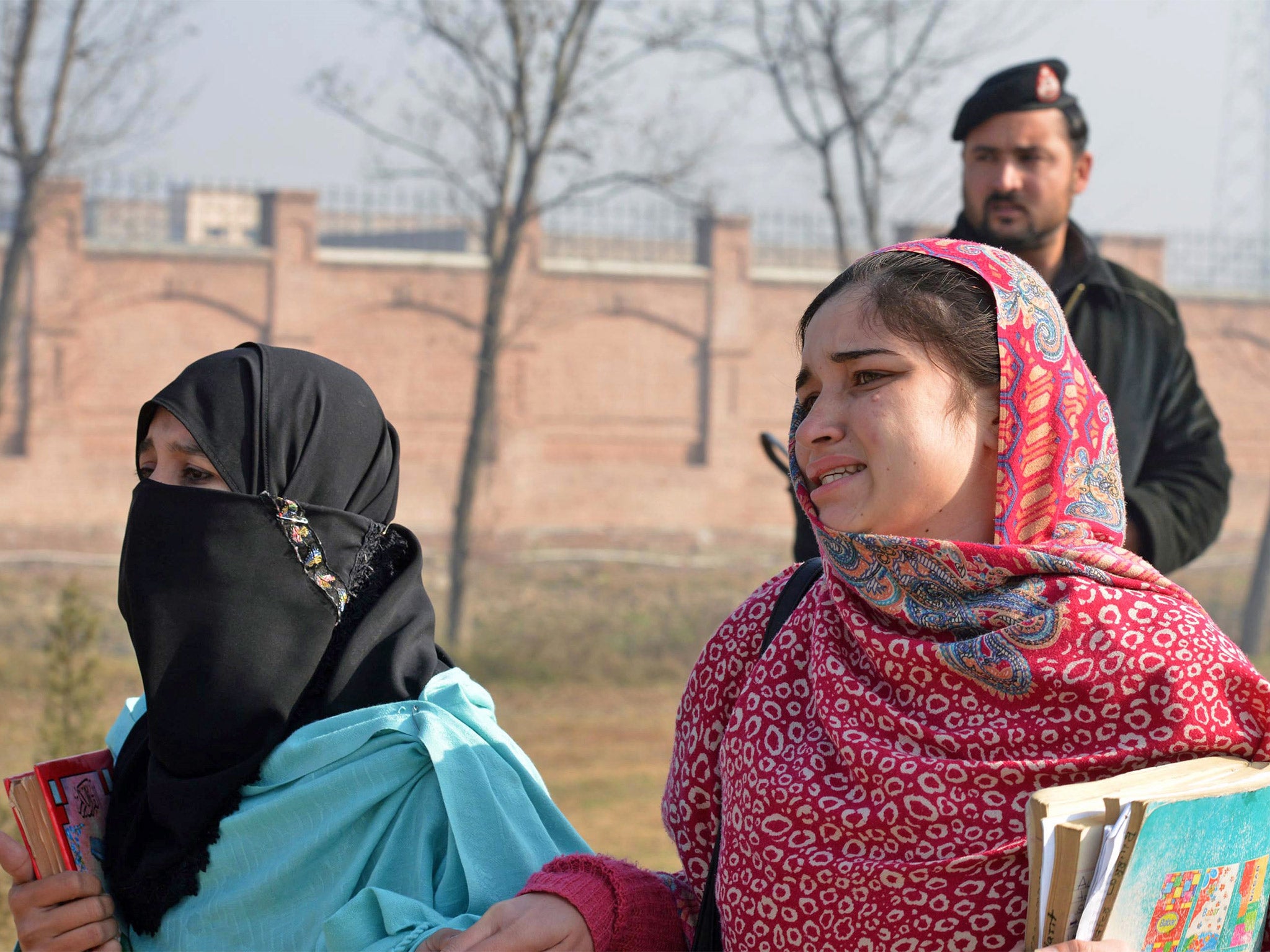Pakistan university assault exposes the limits of the government’s attempts to control the Taliban
The Afghan President must continue building bridges with the Pakistani military and Pakistan itself must close those schools promoting intolerance

Even when the Pakistani Taliban appeared to be at a low ebb, towards the end of 2014, there were few outside the ranks of military spokespeople who foresaw any kind of decisive victory. An army onslaught in the tribal areas of North Waziristan had indeed led to a fall in terrorist attacks across the country. Almost 3,000 militants had allegedly been killed. Was it a new dawn?
The answer came on 16 December 2014, when Taliban fighters opened fire in the classrooms of a Peshawar school, murdering 141 people. It only took six gunmen to carry out that assault, and security in the area – far from the heart of government in Islamabad – is close to non-existent. So long as that remains the status quo, security analysts point out, the Taliban will be able to strike “soft targets” almost at will. And so it has proved. This time fighters wielding AK-47s stormed a university, just 40km away from the school in Peshawar, and left it drenched in blood. At least 22 people were killed.
Besides the brutality of Taliban fanatics – a familiar attribute – this exposes the limits of military force as a containment strategy. Imran Khan, the cricketer turned populist politician, warned regularly of “blowback” that would follow a stepped-up assault in North Waziristan, and favoured the pursuit of peace talks. Parts of the ruling elite may see attacks in Pakistan’s north-west as an acceptable form of collateral damage: some have been accused of allowing militants free rein there, in exchange for guarantees that the more prosperous Punjab region is spared. Corruption aside, a strategy that fails to wipe out the Taliban, but catalyses the murder of hundreds of innocent civilians, cannot be considered satisfactory.
To admit as much is not to advise a total retreat, nor to predict that a reduction of military force will cause the Taliban to cease its terrorist activities in Pakistan (hotel bomb attacks in 2008 and 2009 needed no such provocation). It is simply to face the fact that while fighters can easily cross the border into Afghanistan, and while the authority of both the Afghan and Pakistani governments stops short of the areas in which the Taliban makes its base, the chances of dealing the group a fatal blow remain vanishingly small. If the price of killing 1,000 fighters, most of whom will be easily replaced, is the death of 100 teachers and schoolchildren, it is not a price worth paying.
Neither should too much stock be set by peace talks, however. The Pakistani Taliban has a proliferation of tentacles and no clear head – while one commander claimed he had directed the attack, the group’s main spokesman criticised it as “unIslamic”. Peace talks with the “nicer” groups will not stop the diehards, and, of course, jihadist organisations are less likely to engage seriously when they must compete for recruits with Isis, which refuses point blank to negotiate with “apostate” regimes.
Two avenues should be pursued. The Afghan President, Ashraf Ghani, must continue his policy (unpopular though it is) of building bridges with the Pakistani military, and attempting to co-operate over control of the border. Close the bolt holes, and future military assaults have a better chance of success. And, in the longer term, Pakistan needs to close religious schools that promote intolerance and build a stronger civilian government that can penetrate – using “soft power”, not hard – those Taliban strongholds. Until these conditions are met, there can be no new dawn for this most lawless of regions.


Join our commenting forum
Join thought-provoking conversations, follow other Independent readers and see their replies